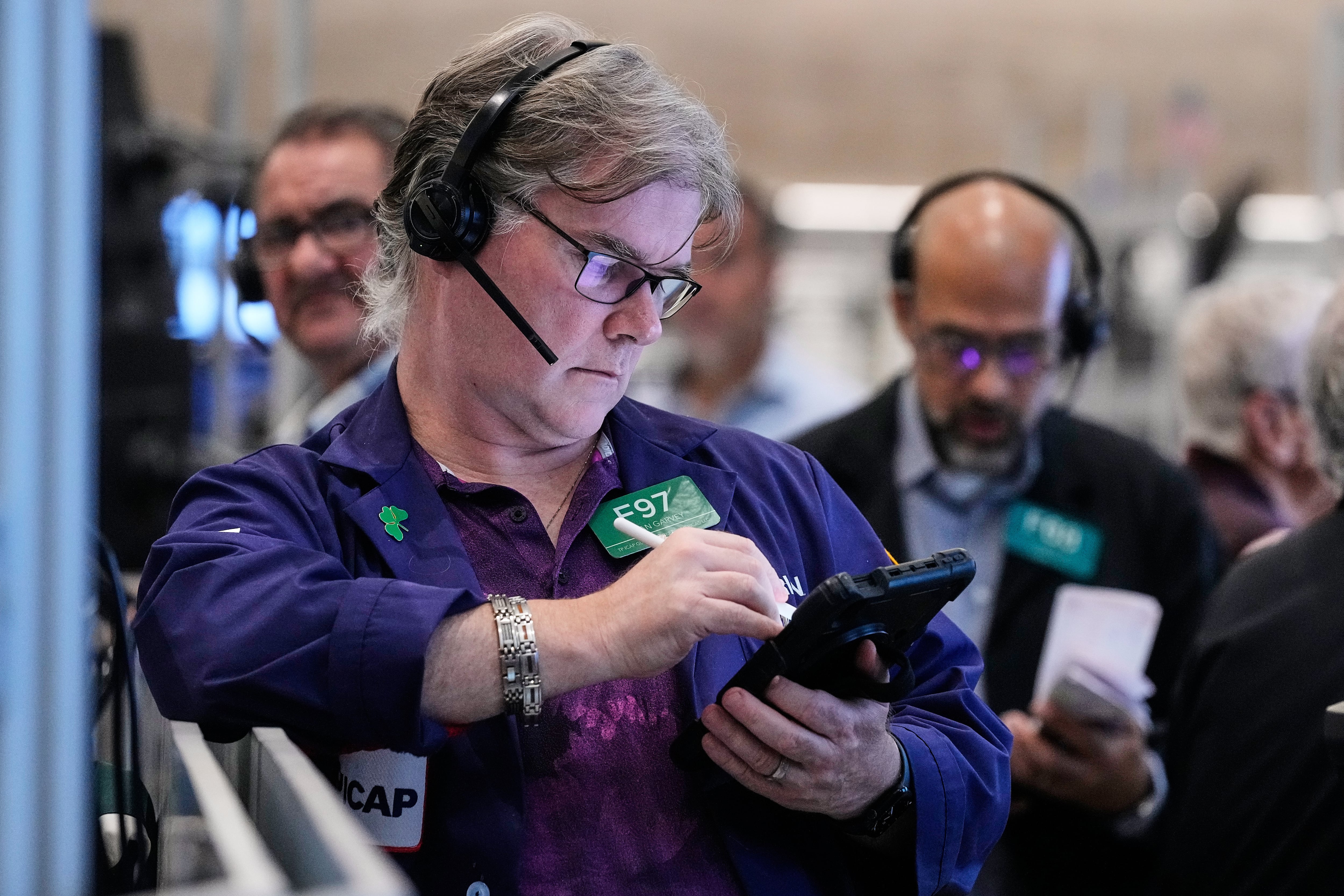WASHINGTON (AP) — Americans’ view of the U.S. economy improved this month, but Americans remain concerned about the impact of tariffs on their economic futures.
The Conference Board said Tuesday that its consumer confidence index rose two points to 97.2 in July, up from 95.2 the previous month.
The increase in confidence was in line with analysts’ forecasts.
In April, American consumers’ confidence in the economy sank to its lowest reading since May 2020, largely due to anxiety over the impact of President Donald Trump’s tariffs.
A measure of Americans’ short-term expectations for their income, business conditions and the job market rose 4.5 points to 74.4, however that’s still well below 80, the marker that can signal a recession ahead.
Consumers’ assessments of their current economic situation inched down by 1.5 points to 131.5.
Share:
More In Markets

Federal Reserve likely to cut key rate Wednesday, may signal another
The Federal Reserve will almost certainly cut its key interest rate on Wednesday and could signal it expects another cut in December as the central bank seeks to bolster hiring. A cut Wednesday would be the second this year and could benefit consumers by bringing down borrowing costs for mortgages and auto loans. Since Fed chair Jerome Powell strongly signaled in late August that rate cuts were likely this year, the average 30-year mortgage rate has fallen to about 6.2% from 6.6%. Still, the Fed is navigating an unusual period for the U.S. economy and its future moves are harder to anticipate than is typically the case.

Wall Street rallies toward more records as gold’s price slumps again
Stocks are rallying toward more records ahead of a week packed with potentially market-moving events. The S&P 500 rose 1% Monday. The Dow Jones Industrial Average added 224 points, and the Nasdaq composite jumped 1.7%. Stocks also climbed in Asia ahead of a meeting on Thursday between the heads of the United States and China. The hope is that the talks could clear rising tensions between the world’s two largest economies. This upcoming week will feature profit reports from some of Wall Street's most influential companies and a meeting by the Federal Reserve on interest rates. Gold fell back toward $4,000 per ounce.

US and China say a trade deal is drawing closer as meeting nears
U.S. and Chinese officials say a trade deal between the world’s two largest economies is drawing closer. The sides have reached an initial consensus for President Donald Trump and Chinese leader Xi Jinping to aim to finalize during their high-stakes meeting Thursday in South Korea. Any agreement would be a relief to international markets. Trump's treasury secretary says discussions with China yielded preliminary agreements to stop the precursor chemicals for fentanyl from coming into the United States. Scott Bessent also says Beijing would make “substantial” purchases of soybean and other agricultural products while putting off export controls on rare earth elements needed for advanced technologies.

Social Security recipients get a 2.8% cost-of-living boost
Some seniors say the Social Security Administration's cost-of-living adjustment won’t help much in their ability to pay for their daily expenses. The agency announced Friday the annual cost-of-living adjustment will go up by 2.8% in 2026, translating to an average increase of more than $56 for retirees every month. Eighty-year-old Florence, South Carolina, resident Linda Deas says it does not match the current "affordability crisis.” The benefits increase will go into effect for Social Security recipients beginning in January. Friday’s announcement was meant to be made last week but was delayed because of the federal government shutdown. Recipients got a 2.5% COLA boost in 2025 and a 3.2% increase in 2024.

Wall Street hits records following an encouraging update on inflation
Wall Street is heading for records after an update said U.S. households are feeling a bit less pain from inflation than feared. The S&P 500 climbed 1% Friday and was on track to top its all-time high set earlier this month. The Dow Jones Industrial Average jumped 529 points, and the Nasdaq composite rose 1.3%. Both are also heading toward records. The inflation data could clear the way for the Federal Reserve to keep cutting interest rates in hopes of helping the slowing job market. A strong earnings reports from Ford Motor and continued gains for AI stars also drove stocks higher.

Slowdown in US hiring suggests economy still needs rate cuts, Fed’s Powell says
Federal Reserve Chair Jerome Powell says that a sharp slowdown in hiring poses a growing risk to the U.S. economy.

Nobel economics prize for explaining innovation-driven economic growth
Three researchers who probed the process of business innovation have won the Nobel memorial prize in economics for explaining how new products and inventions promote economic growth and human welfare, even as they leave older companies in the dust.

Wall Street rallies to recover some of Friday’s sell-off
U.S. stocks are rising and recovering some of their sell-off from Friday. The S&P 500 climbed 1.6%.

Trump suggests canceling Xi meeting and threatens more tariffs after China restricts key exports
President Donald Trump says “there seems to be no reason” to meet with Chinese leader Xi Jinping as part of an upcoming trip to South Korea after China restricted exports of rare earths needed for American industry. The Republican president suggested Friday he was looking at a “massive increase” of import taxes on Chinese products in response to Xi’s moves. Trump says one of the policies the U.S. is calculating is "a massive increase of Tariffs on Chinese products coming into the United States." A monthslong calm on Wall Street was shattered, with U.S. stocks falling on the news. The Chinese Embassy in Washington hasn't responded to an Associated Press request for comment.




